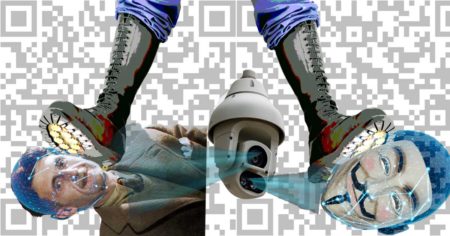Smart people are no more discerning than average, according to a new study from Harvard. “The fruit of their decisions is comparable to the general population. Our dataset does not support the common belief that smart people have more discernment,” assured Professor Noam Chochke.
Discernment Defined
The Oxford Dictionary of English defines discernment as “the ability to judge well.” Merriam Webster defines it as “the quality of being able to grasp and comprehend what is obscure.”
Synonyms for discernment are (Oxford) judgment, taste, discrimination, refinement, cultivation, etc., and (Merriam) “insight, perceptivity, sageness, and wisdom.
Disrupting the Myth
Professor Chochke admitted, “We hope our study disrupts the myth that smart people make better decisions or have magic powers to grasp the obscure. They don’t.”
“Think of a smart person as driving around in a sports car. They might go fast but often in the wrong direction. On the other hand, a dumb person may drive slowly in the right direction.”
Discernment by Artificial Intelligence
Grasping how discernment is computed in Artificial Intelligence applications lends insight into how it works in the human mind.
“Some discernment is part of the computer hardware. Most, however, must be created by continuous processing of real-time events. The results are compared with historical databases and converted into discernment through reference to logic and philosophy databases.”
Likewise, in humans, we see some discernment built-in to the body. For example, when the eye sees an object, some insights about the thing leap to mind. Such insights may be obscure to other primates but not to humans.
Also, like the computer, the human discernment ends at perception unless a person decides to continue the process. Real-time events are not cross-referenced with stored knowledge by themselves. Smart people who don’t make the effort have no more discernment than a child.
Einstein the Economic Putz
When smart people venture beyond their area of expertise, the results are often less than impressive.
Albert Einstein, known for extraordinary achievements in physics, was a putz in economics & politics. In his 1949 article, “Why Socialism?” Einstein makes utopian recommendations divorced from reality:
“In such an economy, the means of production are owned by society itself and are utilized in a planned fashion.”
Albert doesn’t mention how the means of production would be “owned by society.” One hopes he would poo-poo the Nazi methods that had just lead to world ruin. He was blissfully ignorant of the National Socialists who had decimated the world four years before Al’s article by implementing the very policies his article recommends.
It gets worse:
“A planned economy, which adjusts production to the needs of the community, would distribute the work to be done among all those able to work and would guarantee a livelihood to every man, woman, and child.”
What experts did Einstein have in mind who could “adjust production needs of the community”? No person or committee can calculate the vast array of prices and materials in a national economy. However, even if it were possible, where did Albert think one could find angels who would not use such “adjustment powers” for their own gain?
Einstein is a clear example of a genius with zero to negative discernment outside of his field of expertise.
Biblical Discernment
The Bible describes two forms of discernment: natural and spiritual. Spiritual discernment is off the table for the unbeliever who “does not receive the things of the Spirit of God, for they are foolishness to him. And he cannot understand them, because they are spiritually discerned.” — 1 Corinthians 2:14
Natural discernment, however, is something people have or don’t have naturally. It is the ability to (Oxford) “distinguish (someone or something) with difficulty by sight or with the other senses.”
“Tell them: ‘Hear this,
you foolish people who have no understanding,
who have eyes but do not discern,
who have ears but do not perceive” — Je 5:21.
Wisest Man Who Ever Lived Proves the Point
Solomon was the wisest man who ever lived, presumably with the highest IQ. He was given more natural and spiritual discernment than any person who’s ever walked the planet. And yet, he failed to use discernment in shifting his allegiance away from the Lord who had given Solomon everything.
“The LORD was angry with Solomon because he had shifted his allegiance away from the LORD, the God of Israel, who had appeared to him on two occasions and had warned him about this very thing, so that he would not follow other gods. But he did not obey the LORD’s command.” — 1 Kings 11:9–10
Discernment Before Wisdom
Wisdom begins with a fear of the Lord. It should come as no surprise then that the Lord’s precepts provide discernment.
“Your precepts give me discernment.
Therefore I hate all deceitful actions.” — Psalm 119:104
“Conversely, if you don’t hate all deceitful actions, you may not have any discernment, at all.” reasoned professor Chochke.
“Our next study looks at whether smart people are more perceptive, clever, or moral than the average joe. Without revealing too much, only one out of those three is showing promise.”





